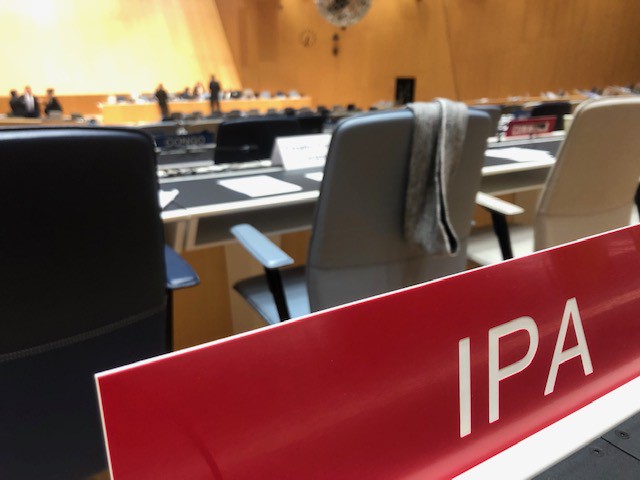SCCR 39 concluded this evening with an agreement found on how to keep the Exceptions and Limitations discussion moving forward and the other agenda items wrapped up and a possible new issue raised in the chamber.
The way forward on Exceptions and Limitations will be on the agenda at the next SCCR with a report on the International Conference to be published no later than two months beforehand. The Broadcasting Treaty comments were closed and the presentations on the music industry, theatre directors and the artist resale right finished in record time despite some technical challenges with the weblink to Montreal. A new issue also popped up. The Ambassador from Sierra Leone called for Public Lending Right to be added to the agenda with support from Malawi and a number of observer organisations. We will post the chair’s summary when it is on the WIPO website.
Anyone who has followed copyright legislation discussions in Europe, South Africa or Canada, will know that copyright has become an emotive subject. Multiple stakeholders are probably guilty of getting carried away. SCCR is no different.
There has been some interesting divergence between the diplomatic language used by observers in the Committee and some of the language on Twitter. A quick look at #SCCR39 will see a number of observers and an occasional Member State sharing some comments on the Committee proceedings. Some of those comments start getting emotional and personal in their criticism.
This week some WIPO Secretariat proposals have been described as ‘retrograde’, the Deputy Director General’s choice of speakers ‘despotic’, the approach of some as ‘copyright colonialism’, reference to an expert as ‘someone called Susan Butler’, a personal attack on the validity of an author representing an association of authors because of the books she has written.
IPA has been largely absent from the feed, we haven’t been live tweeting, but we do publish our daily blog posts which have been characterised by other observers as ‘nasty’ in past SCCRs.
Maybe this is part of general societal shift to emotive arguments. Whether it is the best way to achieve international agreement on copyright policy remains a question.
As the session closed, the tension in the room lifted and observers of all copyright colours had amiable chats and said they’d see each other again soon. A friendly end much more pleasing to the eye.

